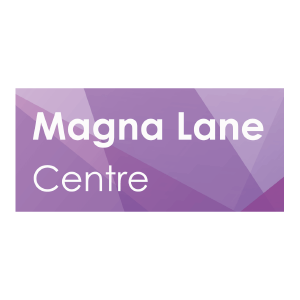


Success Stories
Student A
FS1
They were referred to the Magna Lane following increasing concerns that she was having difficulties adjusting to the setting. Very self-directed. They were displaying violent behaviour towards their peers and not interacting or communicating. Daily meltdowns occurred within the setting, often before they entered the main setting. When distressed they would throw themselves on the floor and bang their head. They would often express their emotions through loud noises.
Home school had reduced their timetable to 15 mins with Mum initially staying.
Summer born (XX/XX)
Family lived in a flat and so during COVID they had no safe open space to play in and had almost no interaction with children of a similar age.
Parents very supportive. Mum worked in an early years setting and so was fully aware of developmental milestones and was concerned that their development was delayed.
Status
- SEN support plan
- Pupil premium
Main Issues
- Development delay
- Social, emotional and mental health difficulties
- SDQ entry score 25 (very high)
- CDC referral
- SALT
Intervention Strategies
- Part time placement 2 afternoon, increasing time from 15 mins to 45.
- No adult demands – 1:1 positive play interactions with the same adult to build trust and relationships. This began outdoors, then moved inside before moving to the main classroom.
- Opportunities for sensory play
- Limited language by staff.
- Attention Autism
- PECS introduced.
Impact of Strategies
- By the end of the placement, they attended 3 full afternoon sessions.
- They happily came into the setting and left Mum without any distress.
- They would tolerate other children around her.
- More inquisitive in their play.
- They were beginning to communicate their basic needs to an adult.
- From September 2022 they returned to their home school. Staff report that they are a ‘different’ child.
- Although there are still concerns in regards to them reaching their developmental milestones, they are settled and happy within their EYFS provision.
- SDQ exit score 15 (Slightly raised) With their emotional score reducing from 8 (Very high) to 1 (average)
- SEMH staff contributed to a support plan to enable home school to apply for EHCP.
Student B
Year 2
They were referred to Magna Lane due to their lack of confidence in all areas of the curriculum. Not able to access learning despite differentiation, scaffolds and support. They had told school staff ‘they don’t understand what is going on.’
Delayed physical, social and emotional development.
Toileting issues: Still in nappies, struggled with self care.
Health issues from birth and so parents very over protective but supportive of the referral to Magna Lane.
SDQ entry scores :
Total: 18 (Very High)
Emotional: 9 (Very high)
Conduct: 1 (Close to average)
Hyperactivity: 4 (Close to average)
Peer Problems: 4 (Close to average)
Status
- SEN support plan
- Pupil premium
Main Issues
- Confidence
- Social, emotional and mental health difficulties
- Toilet Issues
Intervention Strategies
- Focus on developing their emotional needs through positive play interactions with adults and peers
- Bespoke learning opportunities on 1:1 basis
- Lots of talk opportunities through creative activities e.g. clay, painting, music, baking etc
- Positive praise
- Encouragement to try new experiences.
- Board games to promote turn taking, communication, co-operation.
Impact of Strategies
SDQ Exit Scores:
Total: 2 (close to average)
Emotional: 2 (close to average)
Conduct: 0 (Close to average)
Hyperactivity: 0 (Close to average)
Peer Problems: 0 (Close to average)
- Fully engaged in learning activities for sustained periods of time.
- Although they did not pass their Phonics screening their phonetic knowledge has improved and they are able to segment and blend simple words with confidence.
- Confident to ask adults for what they need.
- Development of positive friendships with other children and will take the lead role in play scenarios and will instigate play.
- They will tell others if they are not happy with something.
- They successfully integrated back to their home school in the Autumn term. Follow up meetings with the home school since this return have been positive and they continue to access learning within the mainstream school. Although they still need support to access the learning within the classroom they now have the strategies and increased confidence to ask for help.
- More independence with their intimate care needs (no nappies) but is still under the hospital for this.
- Their views on Magna Lane “I can think better”
Student C
Year 1
They are described as being ‘always being on the go.’ Behaviours at home heightened during lockdown.
CDC referral made by Early Help
SALT referral
They play and interact with other children, however they often need to control the games that are played. They struggle to understand when other children become dominant and disagree with them. They will react by shouting and storming off into a safe space. During these times, they become quiet and non-responsive. They will not acknowledge their behaviour.
They will not talk about his emotions. They often stare past people and will not respond. Regular outburst both physical and verbal. These can be towards peers or adults, resulting in the whole class being removed for safety.
Very often, only time allows them to regulate their emotions and behaviour.
Home school have created a safe space but this is not ideal. Has 1:1 support in school. School in process of gathering evidence for EHCP.
Early help previously been involved.
Parent views: ‘ They need a place where they can feel calm and learn through their interests, they find it difficult to concentrate and need a high level of adult support and stability in his education.’
SDQ entry scores:
Total: 23 (Very high)
Emotional: 5 (High)
Conduct: 4 (High)
Hyperactivity: 9 (High)
Peer problems: 5 (High)
Status
- SEN support plan
- Pupil premium
Main Issues
- At risk of exclusion
- Social, emotional and mental health difficulties
- Lack of appropriate safe space within school for them to calm
Intervention Strategies
- Emotion coaching approach to help them understand and regulate behaviour.
- Access small group and 1:1 activities for core elements of the curriculum
- Shared opportunities for stories and writing to remove barriers
- SALT to work on self-identity and emotions.
- Opportunities to be self-directed and to interact and socialise with other children and choose activities across the provision e.g. construction, role play, small world etc.
- Access to the sensory room
- Increased placement from PT to Full time
- Creative opportunities such as art, music and baking
- Access to outdoor space
- Board games to promote turn taking, listening and co-operation
- Opportunities to use Chrome book to research interests e.g. space, countries around the world
Impact of Strategies
SDQ Current Scores:
Total: 11 (Very high)
Emotional: 2 (close to average)
Conduct: 0 (close to average)
Hyperactivity: 6 (slightly raised)
Peer problems: 2 (close to average)
- More settled and emotional outbursts have reduced significantly
- Kind, caring and helpful to others, especially new children.
- Likes to do jobs e.g. set the table at snack time
- Follows instructions and direction from adults
- Tolerates other children playing their game and is becoming more aware of other people’s viewpoints.
- Parent’s view: They are a lot happier coming to school and talks about ‘happy’ school.
- They still attend on a full time basis as staff and parents feel that they are benefitting from a more bespoke curriculum. All involved feel that this positive impact needs to be sustained for a further period to ensure that they are ready to reintegrate.
- EHCP granted.


